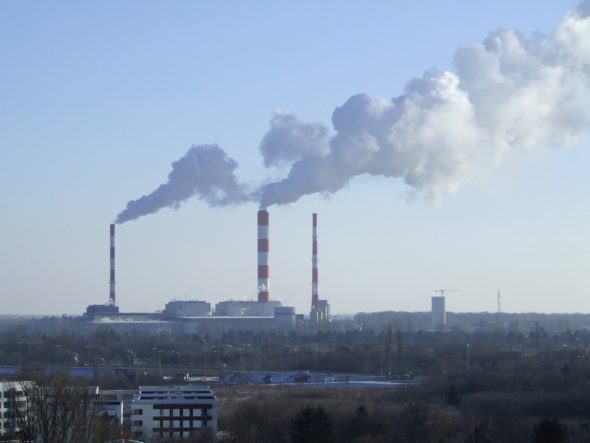Poland remains the only country in the European Union that has not yet presented a long-term strategy to achieve climate neutrality by 2050, which provokes criticism both at home and abroad – writes Mateusz Gibała, editor at BiznesAlert.pl.
Although the work on the new National Energy and Climate Plan was supposed to be completed in June 2024, the document has not yet been submitted for public consultation. Thirty industry and social organizations recently called on the Ministry of Climate and Environment to accelerate work on the plan and conduct fair consultations, emphasizing that this document should not be seen only as an obligation, but as a key opportunity to accelerate the energy and climate transition in Poland. The lack of a strategy represents a serious delay in the context of Poland’s EU commitments and challenges related to the global climate crisis.
The importance of climate strategy
The long-term climate strategy is crucial for Poland, not only from the point of view of fulfilling international obligations, but also to ensure the sustainable development of the country. This strategy is essential to effectively implement the energy-climate transition, which aims to reduce greenhouse gas emissions, improve air quality and protect ecosystems.
One of the most important aspects of having a climate strategy is the ability to plan and predict. With clearly defined objectives and milestones, governments and businesses can make informed investment decisions that are consistent with long-term environmental objectives. This, in turn, allows stabilizing the energy market and increasing the country’s energy security. The climate strategy is also a tool for mobilising financial and technological resources. The deployment of new technologies, such as renewables, electromobility and smart grids, requires large investments. Having a coherent action plan can attract investors and make better use of EU and international funds, which is essential for a costly transformation.
From a social point of view, the climate strategy also aims to improve the quality of life of citizens. Reducing emissions of harmful substances into the atmosphere translates into better air quality, which has a direct impact on human health. Increasing environmental awareness and promoting sustainable lifestyles are key to building a responsible society that actively contributes to environmental protection. The climate strategy is also a way to create new jobs in sectors related to the green economy. The development of the renewable energy industry, the modernisation of energy infrastructure and the development of low-carbon technologies can create new jobs and contribute to the development of local communities. The energy transition can be an impetus for innovation and increase the competitiveness of the Polish economy in the international arena.
The development and implementation of a climate strategy is also important from the perspective of international cooperation. Poland, as a member of the European Union, has an obligation to adapt to the common climate and energy goals. The lack of a strategy not only exposes the country to sanctions, but also weakens its position in international negotiations and limits its ability to use European support mechanisms. Active participation in the global fight against climate change is also a matter of prestige and responsibility towards future generations.
Potential consequences of having no strategy
The lack of a long-term climate strategy in Poland can lead to a number of negative consequences, both internationally and domestically. One of the most important risks is the risk of sanctions from the European Union. Poland, as a member of the EU, is obliged to meet certain climate and energy targets. Failure to comply with these obligations may result in the imposition of financial penalties, which in the long run will burden the state budget. Another major problem is the loss of access to EU funds. Through various financial programmes, such as the Cohesion Fund and the Just Transition Fund, the EU devotes significant resources to environmental and energy transition projects. The lack of a strategy may limit the availability of funds, or even deprive Poland of the ability to apply for them, which will halt the projects that aim to reduce emissions and enable adaptation to climate change.
In the economic context, the lack of a coherent climate policy can lead to investment uncertainty. Investors expect a stable and predictable regulatory framework that will enable them to plan for the long term. The lack of a strategy may discourage investment in modern technologies and renewable energy sources, which in turn will limit the innovation and competitiveness of the Polish economy. It may also lead to delays in the modernization of energy infrastructure, which is crucial for the country’s energy security. The lack of a climate strategy also has negative environmental consequences. Without clearly defined goals and actions, Poland may not be able to effectively reduce greenhouse gas emissions, which will contribute to the deepening of the problem of air pollution and environmental degradation. The consequences of these omissions will be felt primarily by future generations, who will have to face more extreme weather events, droughts, floods and health problems related to pollution.
The lack of a strategy can also lead to the marginalization of Poland on the international stage. In the face of the global climate crisis, countries around the world are taking decisive action to reduce emissions and adapt to climate change. Poland’s lack of commitment may weaken its position in international negotiations and limit its influence on global climate policy. It can also affect relationships with key business partners, who increasingly require their contractors to meet certain environmental standards. The lack of a climate strategy can lead to a loss of public confidence. Increasingly aware of the dangers of climate change, citizens expect the authorities to take decisive action to protect the environment. The lack of concrete plans and actions can lead to frustration and social discontent, which in the long run can translate into political destabilization.









